|
Well, it's been a few months since I've had a chance to sit down and write a bit on this blog. A lot has been going on!
Welcome back friends! I hope you had a wonderful holiday season. Now it's time to start back up to our routines and also to start new ones. This year I hope to try some new techniques that I would like to learn. I'm playing around with more glass projects, which I hope to produce by the Spring. I am also trying to learn more about resin as a medium for jewelry. I've seen some really nicely done jewelry and have been inspired to try this. It's very versatile and your imagination is the limit!
I will continue to bring you information on fashion trends and color trends as they relate to jewelry and just for inspiration and ideas. That's always a great way to begin a project for me. I will try to highlight some new and unique stones as I learn more about them and will continue to bring you some monthly info on gemstones. And don't forget to charge those crystals at the end of the month. We are in for a treat on the last day of January as we will get a Full Moon, a Blue Moon and a Lunar Eclipse or Blood Moon all in one night! Not to mention just how pretty that will be to see. Well I hope you will stay in touch and please watch our Events Page for upcoming shows and specials and don't forget to Like us on Facebook! Let's all get busy and make some beautiful things! I just wanted to take a moment to thank all of our supportive family, friends and customers who keep encouraging us and supporting us in all we do. This means so much to us at RiverRock and we really do appreciate it!
We'd also like to wish everyone a very joyous holiday season! Well it's been a while since my last post and for that I apologize. I had hoped to keep up with monthly posts but quickly got behind. I hope all will be forgiven because I had a very good and happy reason for my absence. My partner and I have been happily working away on a new retail store in Wimberley, Texas!
Right off the heels of our last show, we got word that a location had become available to us. It is something we had talked about for some time and hoped for and we were really pleasantly surprised by the news. So we got to work and will be ready for a Grand Opening in the next few weeks! I will definitely be posting all the details right here and on our facebook page. We hope to see all of our friends there and are excited to be able to offer another outlet for your shopping convenience. Well I guess I should wrap this up so I can get back to preparing for our upcoming event. Don't forget to check back for all the details. Thanks for all your support! 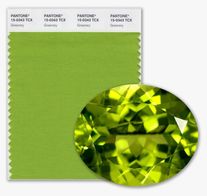 According to the team at the Pantone Color Institute, which calls itself the “global color authority,” green will be everywhere in 2017. Not just any old green, of course, but the green that evokes images of spring. The yellowy green of new grass and trees budding. “Greenery” is Pantone’s Color of the Year for 2017. According to Pantone spokesperson, Leatrice Eiseman, “This is the color of hopefulness and of our connection to nature. It speaks to what we call the ‘re’ words: regenerate, refresh, revitalize, renew. Every spring we enter a new cycle and new shoots come from the ground. It is something life affirming to look forward to." Because Pantone's color selections aren't licensed to other companies, Pantone has no way to gauge the effect of their color choices in the marketplace. They are however picked up by designers of clothing, textiles and furnishings as well as, jewelry and accessories and can be seen in use in these arenas.  While some may think that green is hard to wear, it has shown up all over the Red Carpet and runways, as well as in clothing and furniture stores. In jewelry it is rare to find a natural green gemstone, such as emerald. However, there are some more affordable alternatives. The closest to the emerald color that comes to mind is chrome diopside. It is a beautiful, rich shade of green and much less expensive than emerald but still a bit hard to come by. Agate is a great alternative and comes in any shade desired because it can be dyed. Turquoise also comes in green shades and is a nice change from the more widely recognized blue tones it comes in. As a designer, I am embracing the Color of the Year and can't seem to get enough of it! So enjoy this Spring and all of the colors that remind you of it. The sunny yellows, bright pinks, vibrant purples and even the toned down pastel shades of these colors. I was ready for the change from the deeper, richer colors of fall and winter and am going with the trend in my new designs. Look for amethyst, rose and purple quartz, lemon quartz, aquamarine and peridot for your jewelry selections. I will definitely be using these in my designs this spring and summer!, The New York Times, 2017 https://www.nytimes.com/2016/12/08/fashion/color-of-the-year-2017-pantone-greenery.html?_r=0 Emilio Pucci, spring 2017; Michael Kors, spring 2017; and Balenciaga, spring 2017. Credit Valerio Mezzanotti for The New York Times; Hiroko Masuike/The New York Times; Valerio Mezzanotti for The New York Times UnbuttonedBy VANESSA FRIEDMAN DEC. 8, 2016 http://www.jewellerymag.ru/wp-content/uploads/2016/12/jewellerymag-ru-1-cover-greenery-pantone.jpg http://earthsky.org/earth/march-birthstone-aquamarine-bloodstone
http://gemdictionary.blogspot.com/2013/06/aquamarine.htm http://amykozak.com/gemstone-style-glam-aquamarine 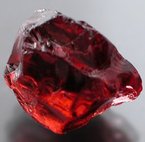 Garnet The garnet is the traditional birthstone gem for those born in January. Garnet is a beautiful stone which is commonly red but can be found in a range of colors such as yellow, orange, green and even blue. The reds range from a rust color to a very deep red. It symbolizes peace, prosperity and good health. Some say it even has the power to give the wearer eternal happiness, health and wealth. The garnet is a very hard gemstone. It ranks 6.5 to 7.5 on the Mohs hardness scale. Garnet is found all over the world. In the U.S., it can be found in Wyoming. Other places such as Greece, Tanzania, Madagascar, Russian and India also mine garnet. Garnet jewelry has been a fixture throughout the ages. Garnets were often used as signet rings in ancient Rome, and the nobility favored garnets in the Middle Ages. The garnet was made popular by the Victorians, who used it to create some of the loveliest jewelry of the era. There are many legends concerning garnet. It is believed to bring peace, prosperity and good health if brought into the home. It is also thought to bring good luck to those who wear it and do good deeds. However, it can bring bad luck if worn and bad deeds are done. Garnet also symbolizes deep and lasting friendship. This gemstone was also used as a talisman for protection both by warriors going into battle and to those who wanted to ward off pestilence and plague. Some ancient healers and wise men even placed garnets in wounds and praised its healing powers. In Medieval times, it protected its wearer against poisons, wounds and bad dreams, and cured depression. Red garnets relieved fever, hemorrhages and inflammatory diseases. Today, we can just wear garnet and appreciate it for it's natural beauty. References/Sources/Credits https://www.americangemsociety.org/en/garnet-history https://www.minedirect.com So sorry to have left off on posting new material but the holidays have come sweeping through my calendar and haven't let up yet. As you can see by our events calendar, we have been super busy with shows since October! Well I promise to pick it back up after Christmas and hope to add some new features also.
In the meantime, we wish you all a joyous holiday season and best wishes for the New Year! Sapphires...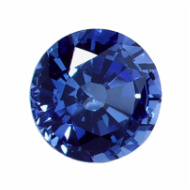 The sapphire, birthstone for September, is related to July’s birthstone, the ruby. They are both a form of the mineral corundum. Red corundum is what we know as the ruby, while all other gem quality forms of corundum are called sapphires. Typically, sapphires are blue stones, ranging from very pale blue to deep indigo. The color ranges on the presence of small amounts of titanium and iron within the crystal structure. The shade valued the highest is the medium-deep cornflower blue. Sapphires also occur in other natural colors and tints – colorless, gray, yellow, pale pink, orange, green, violet and brown – called fancy sapphires. These different colors are caused by different kinds of impurities within the crystal. For example, yellow sapphires get their color from ferric iron, while colorless gems have no contaminants. 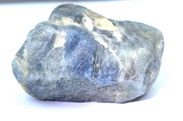 The biggest source of sapphires world-wide is Australia, especially New South Wales and Queensland. Stones from Australia are usually blue stones with a dark and inky appearance. Kashmir, in India, used to be a well-known source of the cornflower-blue stones. In the United States, a major source is the Yogo Gulch Mine in Montana that mostly yields small stones for industrial use. In ancient Grecian times, sapphires were found on the Island of Sappherine in the Arabian Sea. Ancient Persians called sapphire the “Celestial Stone.” It was the gem of Apollo, Greek God of prophesy and was worn by worshipers visiting his shrine in Delphi to seek his help. A special orangy pink sapphire color is called padparadscha, which means “lotus flower” in the language spoken in Sri Lanka. Stones from Sri Lanka were initially the only ones labeled with this name. There’s no telling how many padparadschas have been sifted from Sri Lankan river gravel throughout history. Sri Lankans have a special affection for the stone that’s traditionally been linked with their country. Sapphires were once believed to be protection against snakes. It was believed to kill poisonous reptiles and spiders if placed in a jar containing the stone. The French of the 13th century believed that sapphire transformed stupidity to wisdom, and irritability to good temper. The sapphire was said to represent the purity of the soul. Before and during the Middle Ages, it was worn by priests as protection from impure thoughts and temptations of the flesh and also to symbolize heaven. Ordinary people believed the sapphire brought heavenly blessings to them. Medieval kings of Europe used sapphires for rings and brooches, believing that it protected them from harm and envy. Warriors presented their young wives with sapphire necklaces so they would remain faithful. It was believed that the stone’s color would darken if worn by an adulterer or adulteress, or by an unworthy person. . Traditionally, sapphire symbolizes nobility, truth, loyalty, sincerity, and faithfulness. It has been used to decorate the robes of royalty and clergy members for centuries. Its extraordinary color is the standard against which other blue gems—from topaz to tanzanite—are measured. In other times and places, people instilled sapphires with the power to guard chastity, make peace between enemies, influence spirits, and reveal the secrets of oracles. The sapphire is the most effective stone for healing the nervous system. It regulates the function of the thyroid gland and is used as a remedy for lack of appetite and nervous heart ailments. Psychologically, wearing the stone can strengthen willpower and helps to give healing strength. https://upload.wikimedia.org/wikipedia/en/f/f7/Sapphire.png http://thumbs1.picclick.com/d/w1600/pict/291599757964_/4584CTROUGH-BLUE-SAPPHIRE-GENUINE-NATURAL-MINE-Free-shipping.jpg http://earthsky.org/earth/september-birthstone-sapphire http://www.gia.edu/sapphire-history-lore "Healing Crystals and Gemstones from Amethyst to Zircon" by Dr.Flora Peschek-Bohmer and Gisela Schreiber, Konecky & Konecky, 2002 Peridot... 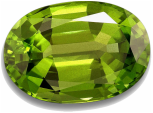 August has two birthstones, peridot and sardonyx. Peridot is a transparent form of olivine which is formed due to volcanic activity It ranges in color from olive green to lime green, sometimes with a brownish tinge to it, depending on the mineral content. The green color comes from its iron content and the brownish hue is from a higher iron content. Quality peridot are sometimes referred to as "Evening Emeralds" because they appear greener under artificial light. This gemstone is associated with prosperity, growth, dignity, and love. It is also believed to have the power to ward away evil and nightmares. Peridot is believed to bring peace and progress to one’s life. In ancient times, Egypt was the primary source of peridot and was known as the 'Gem of the Sun'. Peridot is currently mined in Burma, Norway, Brazil, China, Kenya, Sri Lanka, Australia, and Mexico. Small stones can also be found in Arizona. Peridot has also been found in some meteorites. 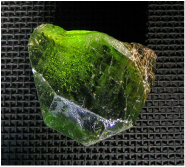 Peridot is one of the oldest known gemstones. It was believed that the gemstones worn by the Queen Cleopatra were not emeralds as was believed in history but may have actually been peridot. References to the August gemstone have also been found in the Bible, going by its Hebrew name ‘Pitdah’. The “topaz” on the breastplate of Aaron, in the Old Testament, was believed to actually be peridot. Ancient Egyptians, around 1580 B.C. to 1350 B.C., created beads from peridot. For Greeks and Romans, peridot was in popular use as intaglios, rings, inlays, and pendants. The Crusaders thought that peridots were emeralds, and brought them back to Europe where they were featured as ornaments in churches. The most sought after and expensive peridots are of the lime-green color not having any brown or yellow hue. Sardonyx...  Sardonyx is a variety of the silica mineral called chalcedony. This sort of mineral contains layers of tiny quartz fibers, which are stacked on top of each other to give a banded appearance. The layers in these stones range from translucent to opaque. Sardonyx can vary in color from white or gray to more colorful varieties such as browns and reds. The best stones are found in India but can also be found in Germany, Czechoslovakia, Brazil, and Uruguay. Here at home In the United States, you can find sardonyx in the Lake Superior region and in Oregon. 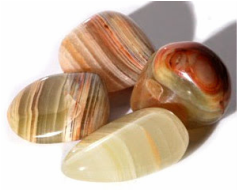 Cameos and intaglios are often carved from sardonyx. Sardonyx is a relatively common and inexpensive gemstone and was a favorite in ancient times because it was attractive, but also because it was could be found readily. Unlike most rare gemstones that could only be bought by the wealthy, sardonyx could be obtained by many people. Roman soldiers wore sardonyx talismans to guard from evil and bring good fortune engraved with heroes such as Hercules or Mars, god of war. It was believed that the stone would make the wearer as brave and daring as the figured carved on it. During the Renaissance period, sardonyx was thought to bring eloquence to anyone wearing it and was highly valued by public speakers and orators. Sardonyx is a stone of strength and protection. It is used to enhance willpower, integrity, stamina and vigor. It is also believed to bring lasting happiness and stability to marriage and partnerships. It also attracts friends and good fortune. A lovely stone to have! http://www.birthstonezodiac.com/birthstones/august-birthstone/
https://www.americangemsociety.org/en/augustbirthstones http://www.richardsjewelry.com/userfiles/image/AugustPeridot.jpg https://upload.wikimedia.org/wikipedia/commons/c/cf/Olivine_(peridot).jpg http://earthsky.org/earth/august-birthstone-sardonyx-peridot https://crystal-cure.com/sardonyx.html |
AuthorI am excited to begin bringing you new information about trends in design and colors as they relate to jewelry and gemstones. I'll also be adding some great links that I've found along the way from professionals in both the fashion and jewelry industries. And I would love to hear from you! Archives
March 2021
Categories |
Photo from Infomastern


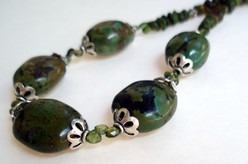
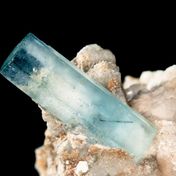
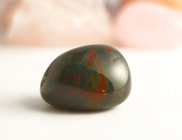
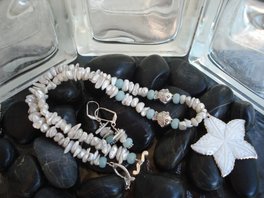
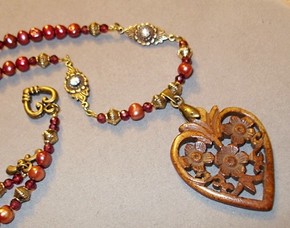

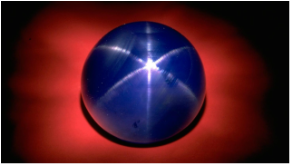
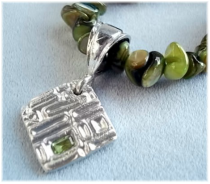
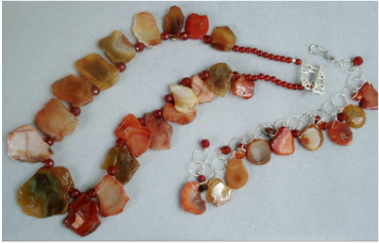
 RSS Feed
RSS Feed